Why Your Short-Term Rental Accounting Belongs in Standalone Software
Switching PMS platforms or fintech tools doesn’t have to disrupt your financial foundation. Learn why STR property managers are moving their accounting outside of the PMS—and how this shift supports faster growth, easier acquisitions, and smoother tech transitions.
September 26, 2025
Corey
.png)
Why Your STR Accounting Should Live Outside the PMS
Navigating Tech Stack Volatility in STR Management
The modern Short-Term Rental (STR) landscape is powered by a sophisticated web of platforms and tools. Gone are the days when a property management system (PMS) was the solitary hub for all operational needs. Today’s property managers depend on a dynamic mix of PMS providers, dynamic pricing engines, guest messaging apps, channel managers, and an expanding array of fintech integrations. While this unlocks efficiency and growth, it also introduces real risk—especially as businesses scale and evolve.

Frequent PMS migrations have become the norm: businesses outgrow legacy platforms, respond to industry innovation, or adapt to the specific requirements of mergers and acquisitions. Unfortunately, these transitions are rarely as simple as mapping data fields and pressing "Export". Instead, they often trigger a cascade of operational and financial challenges:
- Reconstructing complex booking splits and owner statement logic
- Reestablishing fee and expense allocation formulas
- Rebuilding historical data and trust accounting workflows
Each of these changes can grind financial operations to a halt, increasing the risk of payout errors, reporting inaccuracies, and compliance slip-ups. For STR property managers committed to scalable, resilient growth, it’s time to rethink where accounting infrastructure truly belongs.
Understanding the Cost of Embedding Accounting in the PMS
Many property managers still tether their entire financial workflows—everything from owner payout logic to trust accounting rules—directly to their PMS. On the surface, this is convenient. But what happens when you need to upgrade, consolidate, or integrate with new fintech tools? Tightly coupling your financial backbone to the PMS presents real dangers:
- Non-transferable financial rules: Owner statement formulas, revenue splits, and fee structures are often unique to each PMS and rarely export outright.
- Loss of historical payout data: Migrating years of owner statements or commission logic can mean starting from scratch, with gaps in financial history.
- Error-prone rebuilds: Reprogramming custom trust accounting logic—especially under migration deadlines—invites mistakes, missed transactions, and compliance risks.
In any growing STR business, financial data should be resilient and portable, able to withstand operational changes and technology transitions without disruption. When the PMS is the single source of truth, this is virtually impossible. It’s not just about convenience—it’s about protecting the integrity and auditability of your finances.
Building a Durable Financial Brain With Independent Accounting
As the STR industry matures, leading operators are externalizing their accounting workflows, centralizing them in platforms specifically designed for property management financials.
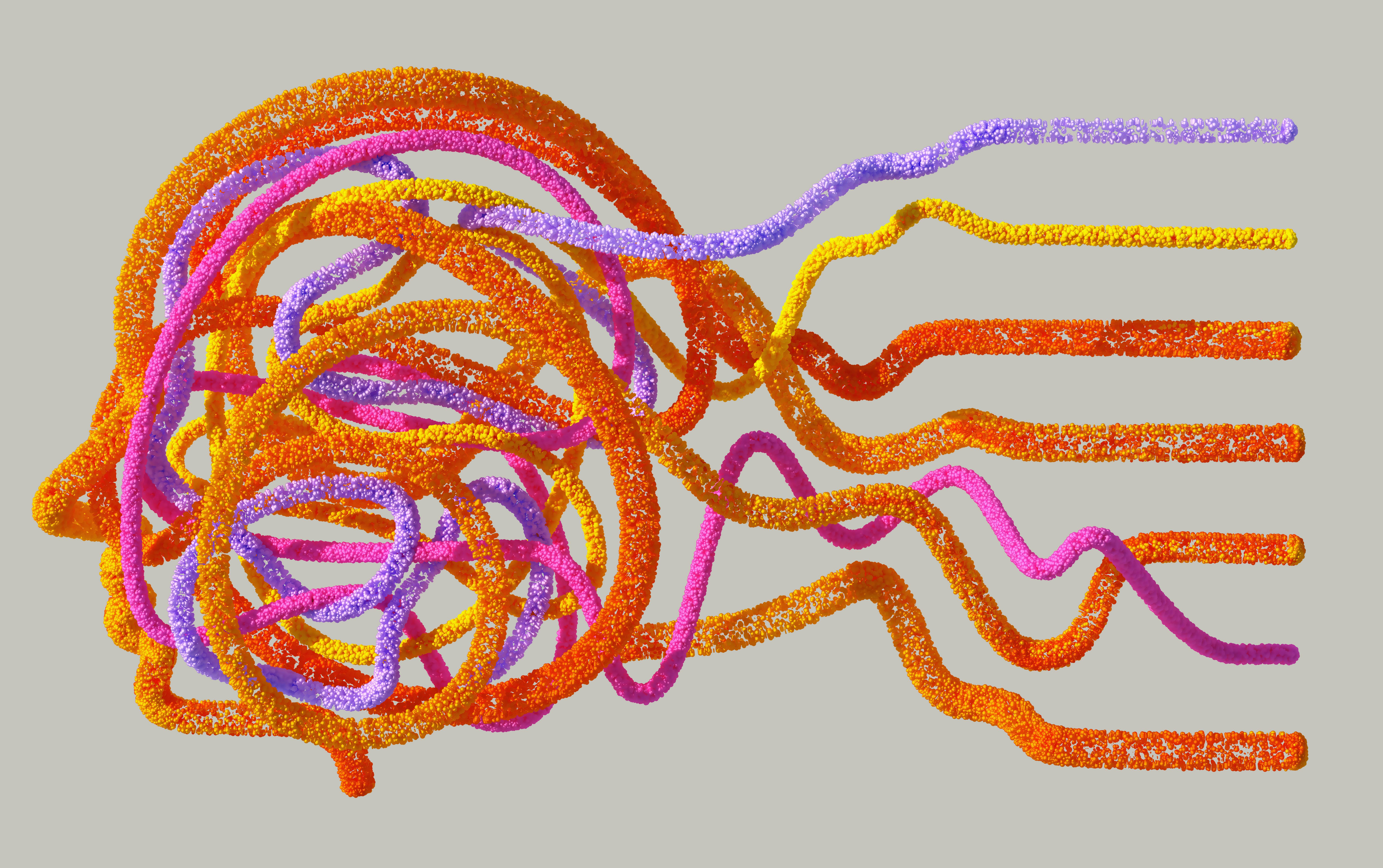
Think of it as installing a "financial brain"—one that sits above your operational stack and seamlessly orchestrates PMS, payment processors, and fintech tools. Industry solutions like Clearing exemplify this approach, enabling true modularity without locking financial logic into any single operational platform.
With independent, centralized accounting:
- PMS migrations become plug-and-play—you simply connect the new operating system, without rewriting critical rules.
- Booking splits, tax logic, and owner payout formulas remain consistently applied, regardless of which PMS or OTA you use.
- Expense workflows and financial reporting remain unaffected through tech transitions or expansion initiatives.
This gives property managers the confidence to focus on strategic growth and portfolio optimization, instead of marshaling resources for the next inevitable tech migration.
Mergers, Acquisitions, and Portfolio Growth: Accounting as an Infrastructure Advantage
Scaling an STR operation often means entering the world of M&A—whether as a buyer growing your portfolio, or as a business being acquired. In either scenario, externalized accounting is a critical infrastructure advantage.
For PMs being acquired: Acquirers typically have their own PMS or standardized internal systems. When your financials are independent and portable, the transition is vastly simplified. Historical payout logic, owner balances, and trust accounting practices remain intact—no matter how the front-end changes.
For PMs acquiring others: Integrating new properties (and their financial data) becomes straightforward. You can onboard them into your centralized system quickly, without rebuilding countless financial reports or statement logic from each prior PMS.
This strategic approach not only speeds up integration and onboarding, but it also presents a more attractive, audit-ready profile to prospective buyers and investors—making accounting an enabler, rather than a bottleneck, for rapid portfolio growth.
Fintech Agility and Integrated Expense Management

The fintech revolution is transforming expense management in Short-Term Rental properties. Platforms like Ramp, Column Bank, and Mercury allow managers to enter into the modern fintech era, often issuing virtual cards or bank accounts (chequing, trust, etc.) for properties and departments, automating expense categorization, and improving trust accounting workflows at the transaction level.
However, most PMS platforms are not built to ingest or interpret granular fintech data. This is where fintech-native accounting platforms shine. Tools like Clearing are designed for deep integrations with modern fintech solutions, enabling you to:
- Seamlessly account for property-level spending through automated data feeds
- Transition smoothly between fintech partners without having to refactor your underlying accounting rules or custom statements
This agility ensures that when your operational or banking tech stack evolves, your financial system keeps up effortlessly—always compliant, always auditable.
Best Practices for Scalable STR Financial Operations
Success in scaling an STR portfolio depends on building financial systems that adapt—not break—when technology and business strategy mature. Consider these best practices for future-proofing your accounting infrastructure:
- ✅ Use a standalone accounting platform that integrates easily with any PMS or fintech solution in your stack.
- ✅ Maintain booking logic, fee rules, and owner statement automation outside of your core operational tools.
- ✅ Select solutions with robust APIs and native fintech support to allow for seamless future integrations.
- ✅ Anticipate migration scenarios well before they happen—document your rules, test porting, and build systems that are designed to move.
- ✅ Design your financial system to scale— build once, and let it grow alongside your business and technology investments.
By adopting a modular, resilient approach to accounting, STR property managers don’t just avoid operational headaches—they empower growth, streamline acquisitions, and ensure that financial best practices persist through every evolution of their tech stack.
To see how industry-leading property managers are future-proofing their accounting infrastructure, book a demo with an expert technology advisor at Clearing today.
Clearing is a Financial Technology Company, not a bank.

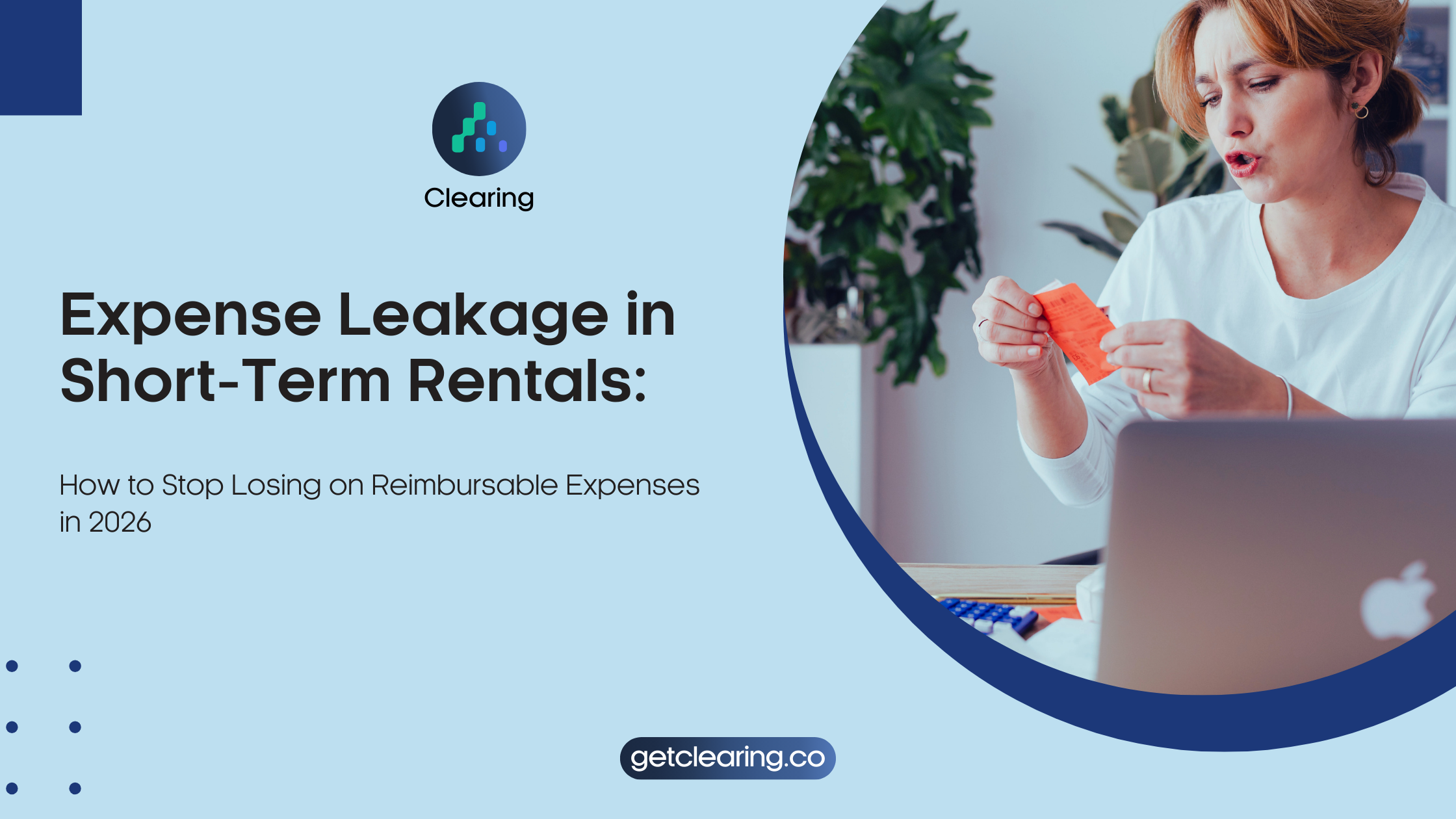


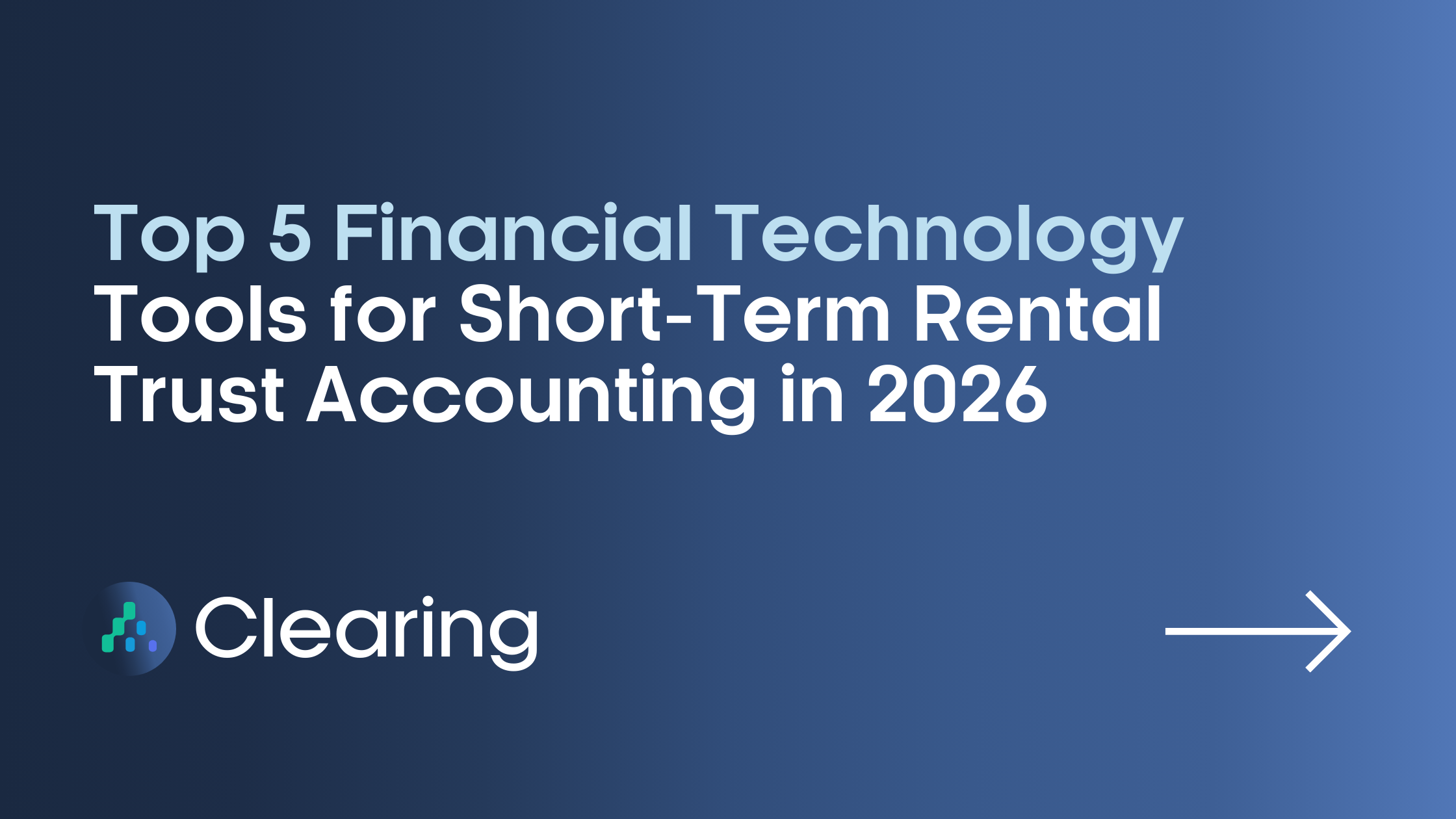

.png)
.png)
.png)
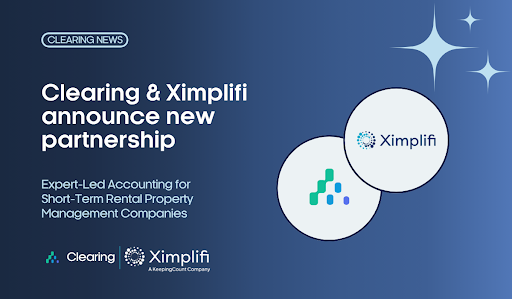
.png)
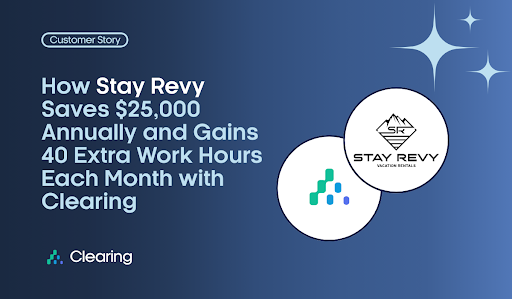
.png)
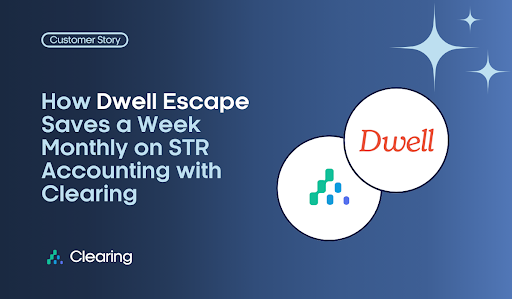
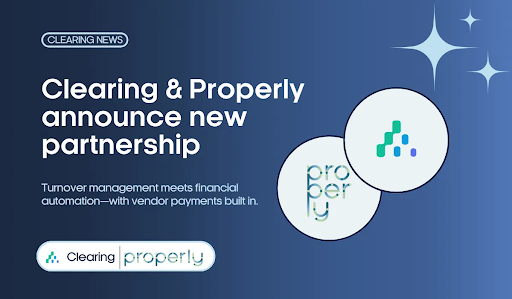
.png)
.png)
%20(1).png)
%20(1).png)
%20(1).png)
.png)
%20(2).png)
%20(1).png)
%20(1).png)
.png)

.png)
.png)
.png)
%20(1).png)
.png)
.png)
.png)
.png)
.png)
.png)
.png)
%20(1).png)
.png)
.png)
.png)
%20(1).png)
%20(1).png)
%20(1).png)








.jpg)
%20(1).png)
%20(1).png)
%20(2).png)
%20(1).png)

%20(1).png)
%20(1).png)
%20(1).png)



%20(1).png)
%20(1).png)
%20(1).png)
%20(1).png)
%20(1).png)


%20(1).png)
%20(1).png)
%20(1).png)
%20(2).png)
%20(2).png)



%20(2).png)


%20(2).png)
%20(1).png)
.png)


%20(2).png)
%20(2).png)

.jpg)
.png)
.png)
.png)



.png)

.png)